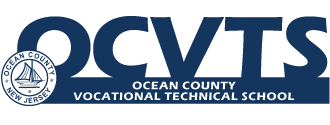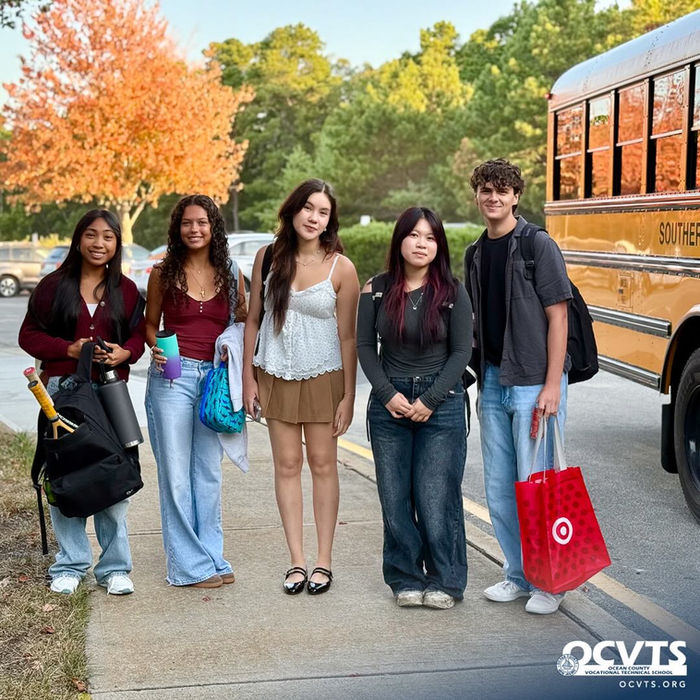DEC 20, 2022
Veolia North America Awards MATES $20,000 in Partnership on a Derelict Crab Pot Recovery Project to Help Preserve the Barnegat Bay
Veolia North America Awards MATES $20,000 in Partnership on a Derelict Crab Pot Recovery Project to Help Preserve the Barnegat Bay
Dr. Wnek \ Nicholas Spiech
DEC 20, 2022
MANAHAWKIN, NJ: On December 20, 2022 Veolia North America partnered with the Marine Academy of Technology and Environmental Science (MATES) as part of their Project Sonat Environmental Program. Veolia North America awarded MATES with a generous donation in the amount of $20,000.00 that will allow them to further their conservation efforts with recovering derelict crab pots and to promote and distribute bycatch reduction devices (BRDs) for crab pots throughout the area. This project will help in the preservation of marine organisms and safeguarding the waterways and marine life in the Barnegat Bay.
Marine debris can cause the death of a variety of marine organisms including diamondback terrapins and other finfish species (VIIMS 2009). Commercial and recreational crab pots are approximately 0.6 m x 0.6 m x 0.6 m (2 ft x 2 ft x 2ft) and most are vinyl-coated that are set and retrieved by a line and buoy system. Crab pots can become lost during the season if pots are abandoned, lost during storms, and/or accidentally cut by passing boats, or break for other reasons. Derelict crab pots will continue to kill marine organisms (marine crabs, turtles, and fish) as they are “lost” and therefore unchecked, so animals become trapped or entangled, and considered “marine debris.”
The Marine Academy of Technology and Environmental Science (MATES), under the coordination of The Conserve Wildlife Foundation of New Jersey with partners including Stockton University (Stockton), and the local fishing community recovered over 2100 derelict crab pots between 2015 and 2019. However, the past few years, there are numerous derelict crab pots that are sitting in Barnegat Bay and more crab pots are being added each year. A survey conducted by Stockton University in 2018 suggested that there were 1500 crab pots alone between the Tunney-Mathis Bridge north to the Mantoloking Bridge.
This generous donation from Veolia North America will allow us to retrieve derelict crab pots and other derelict fishing gear – MATES, Project Terrapin, and local fishermen will use side scan sonars to locate and retrieve gear over the months of December to March during the winters of 2022/2023 and 2023/2024. We also be able to purchase and distribute bycatch reduction devices (BRDs) to the community to help reduce non-targeted catch, and to maintain blue crab captures. BRDs will be available through some local crab pot retailers and partners such as Jenkinson’s Aquarium and the Long Beach Township Marine Field Station starting this spring. Look for our BRD educational displays at events starting this spring.
Veolia North America Awards MATES $20,000 in Partnership on a Derelict Crab Pot Recovery Project to Help Preserve the Barnegat Bay

Dr. Wnek \ Nicholas Spiech
DEC 20, 2022
Veolia North America Awards MATES $20,000 in Partnership on a Derelict Crab Pot Recovery Project to Help Preserve the Barnegat Bay
MANAHAWKIN, NJ: On December 20, 2022 Veolia North America partnered with the Marine Academy of Technology and Environmental Science (MATES) as part of their Project Sonat Environmental Program. Veolia North America awarded MATES with a generous donation in the amount of $20,000.00 that will allow them to further their conservation efforts with recovering derelict crab pots and to promote and distribute bycatch reduction devices (BRDs) for crab pots throughout the area. This project will help in the preservation of marine organisms and safeguarding the waterways and marine life in the Barnegat Bay.
Marine debris can cause the death of a variety of marine organisms including diamondback terrapins and other finfish species (VIIMS 2009). Commercial and recreational crab pots are approximately 0.6 m x 0.6 m x 0.6 m (2 ft x 2 ft x 2ft) and most are vinyl-coated that are set and retrieved by a line and buoy system. Crab pots can become lost during the season if pots are abandoned, lost during storms, and/or accidentally cut by passing boats, or break for other reasons. Derelict crab pots will continue to kill marine organisms (marine crabs, turtles, and fish) as they are “lost” and therefore unchecked, so animals become trapped or entangled, and considered “marine debris.”
The Marine Academy of Technology and Environmental Science (MATES), under the coordination of The Conserve Wildlife Foundation of New Jersey with partners including Stockton University (Stockton), and the local fishing community recovered over 2100 derelict crab pots between 2015 and 2019. However, the past few years, there are numerous derelict crab pots that are sitting in Barnegat Bay and more crab pots are being added each year. A survey conducted by Stockton University in 2018 suggested that there were 1500 crab pots alone between the Tunney-Mathis Bridge north to the Mantoloking Bridge.
This generous donation from Veolia North America will allow us to retrieve derelict crab pots and other derelict fishing gear – MATES, Project Terrapin, and local fishermen will use side scan sonars to locate and retrieve gear over the months of December to March during the winters of 2022/2023 and 2023/2024. We also be able to purchase and distribute bycatch reduction devices (BRDs) to the community to help reduce non-targeted catch, and to maintain blue crab captures. BRDs will be available through some local crab pot retailers and partners such as Jenkinson’s Aquarium and the Long Beach Township Marine Field Station starting this spring. Look for our BRD educational displays at events starting this spring.
Avenir Light is a clean and stylish font favored by designers. It's easy on the eyes and a great go to font for titles, paragraphs & more.














